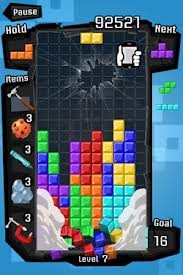Besides versions such as Facebook's Tetris Battle being tons of fun, a new study reveals the tile puzzle video game might also help to reduce the frequency of traumatic memories. The computer game could aid as a psychological treatment to erase bad memories after experiencing military combat, terrorist attacks, sexual assault, and other causes of flashbacks due to post-traumatic stress disorder (PTSD).
In the study that used video game therapy, 56 participants watched a 12-minute video clip that included disturbing images, according to Science Mag. They showed people in dangerous situations, or experiencing injuries or death.
Volunteers looked at movie stills during the following day. This activity would "reactivate" the bad memories of the film.
The treatment group was required to play Tetris for 12 minutes because it is a visuospatial game. In fact, it might use the same brain regions utilized for scenic and traumatic memories.
Research volunteers showed different results. Those who played the addicting game had drastically fewer flashbacks to the disturbing scenes during the next week, than the control group did.
Researchers discovered that Tetris and other "visually demanding" games such as Candy Crush can lower flashbacks or bad memories of past traumatic events by up to 51 percent, according to University Herald. This lowers PTSD risk.
Emily Holmes, the study's senior author, told The Economic Times that such video games block "intrusive memories." Those recollections are the main symptom of PTSD.
The social scientists admit that although the sensory experience of watching such scary scenes is on a different level than undergoing real trauma, the block-building game could become a cheap and practical treatment for victims of haunting memories, for example. It could provide some psychological relief.
Tetris, the first entertainment software exported from the Soviet Union to the United States, was created in 1984. It was initially available on IBM PCs and Commodore 64.
The findings of the new study were published recently in the journal Psychological Science.



























